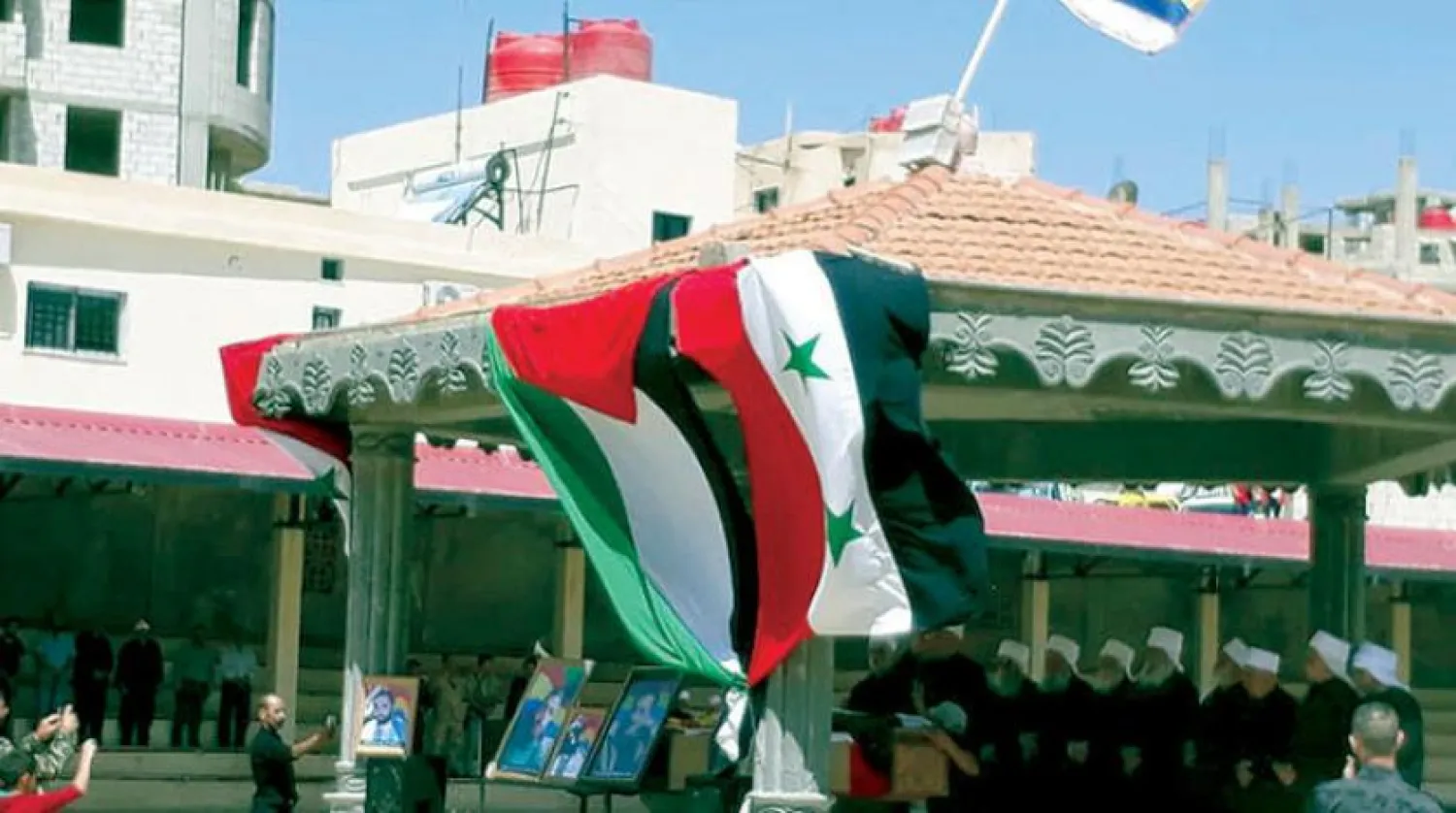Mourners in the predominantly Druze province of Sweida in southern Syria attended mass funerals Thursday for dozens of people killed in coordinated attacks by ISIS in the worst bloodshed to hit the city and its surrounding countryside since the war began in 2011.
The death toll in the ISIS suicide bombings and shootings rose to 246, including 135 civilians, the Syrian Observatory for Human Rights said.
The others killed were pro-regime fighters or residents who had taken up arms to defend their villages, it said.
"The toll keeps rising as civilians who were wounded are dying and people who were unaccounted for are found dead," Abdel Rahman said.
The onslaught began on Wednesday with four suicide bombings in the city of Sweida, which was followed by attacks with guns and explosives on villages to its north and east.
A fourth blast hit the provincial capital later in the day.
Syrian state television broadcast footage of the funeral processions in Sweida. Men carried caskets draped in the government flag and pictures of those killed.
The International Committee of the Red Cross condemned the attack as "senseless and tragic".
"More distressing reports out of Syria," it said on Twitter. "We repeat: Civilians are not part of the fight."
ISIS claimed the attack in two separate statements on Wednesday.
On Thursday, Syrian Foreign Minister Walid Muallem slammed the attacks as he hosted a delegation of Chinese diplomats in Damascus, according to state news agency SANA.
He said "ISIS remnants coming from the Badiya committed a brutal, barbaric crime that left hundreds dead and wounded."
This was the worst bloodshed to hit Sweida province since the civil war began in 2011.
The province is largely controlled by the regime, while ISIS retains a presence, including in a pocket of the eastern province of Deir Ezzor and in parts of the vast central Badiya desert, including in Sweida.
The Sweida websites posted images that purported to show ISIS militants killed in the assault with identification cards showing they were from Yarmouk camp.
Zeina, a resident of the tiny village of Al-Matuna, said her family woke up to the sound of gunfire and grenade blasts at around 5:30 am on Wednesday.
"My relative shot back at one of the fighters outside our home and we heard him scream: 'The infidels have killed me'," she said.
Her cousin and his wife were both killed.
"The villages that were attacked were on edge last night, and all the men were on high alert," Zeina, 32, said on Thursday.









